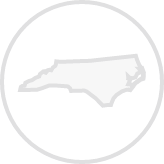Create a North Carolina Bill of Sale with our customizable template!

A North Carolina bill of sale is a written record that documents the change in legal ownership of an item. In addition to being required to transfer the ownership through a state agency from one owner to another, a North Carolina bill of sale is an important part of personal record keeping. It can be useful if there is ever a legal dispute of some kind involving the item.
The most common bills of sale used in North Carolina include a general bill of sale, a bill of sale for a motor vehicle, a bill of sale for a boat, and a bill of sale for a gun.
A simple bill of sale for North Carolina includes certain information about both the buyer and the seller. It also includes information about the item being sold:
A North Carolina bill of sale can be written in plain English. There is no need for archaic terms or legal jargon. It is important to make sure that the bill of sale includes the required elements. If you are a party listed in a North Carolina bill of sale, make sure that you have more than one copy of the completed document for your records.
Sometimes. A North Carolina car bill of sale is only required to register a motor vehicle if the vehicle was purchased from a dealership. For a purchase from a dealership, you'll need a notarized certificate of title, a bill of sale that shows the purchase price, a title application, an odometer disclosure statement if the vehicle is less than ten years old, and a damage disclosure statement.
Private vehicle sales require a notarized vehicle title, a lien release if there are liens on the title, a title application, an odometer disclosure statement, and a damage disclosure statement.
For more information about vehicle registration in North Carolina, visit the North Carolina Department of Transportation, Division of Motor Vehicles Website at https://www.ncdot.gov/dmv/title-registration/vehicle/Pages/documents-forms.aspx.
Yes. You must have a notarized North Carolina bill of sale to register a boat.
You'll also need to complete a Registration & Titling Application. If the title is lost, the seller can complete a statement of lost title.
Sometimes. This varies from county to county. You should contact the Sheriff's office for your county.

Create a North Carolina Bill of Sale in minutes with our professional document builder.
Get Started Now!